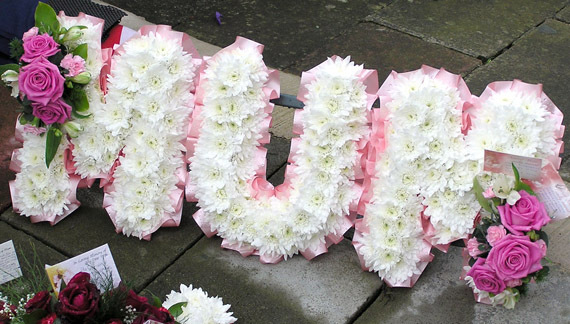In a life filled with unknowns, one of the few constants is the certainty of death. Some people believe that it's just the beginning of another life, whether in heaven, hell or reincarnated. But for humanists, atheists and others who reject claims of human existence persisting beyond the brain's functioning, death is the final stage. Nothing, neither good nor bad, comes after that final moment.
While the prospect of permanent nonexistence is terrifying for some, it can also be comforting. As humanists, we don't bank on an afterlife unsupported by the evidence. Instead as John Lennon said, "with no hell below us, and above us only sky" we live for today. This means that regardless of our spiritual state or acts on earth, there will be no punishment in the beyond. And without an afterlife, there's no reason to adopt outdated rules, such as those found in Christian bibles that prohibit enjoying Texas barbecue, going clean shaven, wearing stretch cotton or working on Sundays. As the Great Agnostic of the 19th Century, Robert Ingersoll once said, "I would rather live and love where death is king than have eternal life where love is not."
Whether someone is religious or not, dealing with the death of a loved one is never easy. People are understandably vulnerable in such situations. So, of course, nobody would be so insensitive as to proselytize at funerals, right? Wrong! How many of us have experienced a priest, minister or rabbi using a funeral as an excuse to try introducing or reintroducing the grieving into the fold? I've experienced this myself a few times. I objected to the proselytizing in these moments because it excluded and divided people at a time that calls for inclusion and solidarity.
Unfortunately, from the moment an atheist's loved one falls seriously ill, many religious people feel that consoling them with a religious message is appropriate. In reality, statements like "we're praying for them" or "God is watching over them" are no comfort. In fact, such sentiments may alienate the bereaved from family and friends in their time of need. Of course, it's even worse to attempt to comfort a dying nontheist with god references. Faced with death, believers seem to think that atheists must recant, but Christopher Hitchens showed us that this is not the case. After being repeatedly confronted with his impending demise and the potential benefits of faith, he said with his usual clarity, "No evidence or argument has yet been presented which would change my mind."
Proselytization is even worse when religious family members hold a religious funeral for someone who was clearly not religious while they were alive. When a close atheist friend of mine, Sharon Raine, died unexpectedly in her early twenties, her funeral was among the most drenched in Christianity that I've ever experienced, featuring speeches about her experiencing heaven. To me and other secular friends in attendance, it was clear that trying to "remember" nonbelievers as people of faith is more than just exclusionary--it's disrespectful. It's upsetting when the faithful imbue religiosity into the lives of dead secularists.
This is not to say that atheists want to ban religious family members and friends from talking about their own beliefs at a funerals or remembrance services. For many people, religion is a critical part of navigating the intense grief that comes with the death of a loved one. When religious people want to express their faith to nontheists or others who don't share their faith, the best approach is personalizing their statements. They might say, "For me, it's comforting to believe that they are in a better place." Since their intentions are usually positive, if religious people recognize that not everyone resorts to religion to deal with death and that pushing religion upon the deceased or grieving is inconsiderate, then many of these issues will resolve on their own. Broader awareness of secular alternatives is also necessary. The use of humanist celebrants, now increasingly popular in the UK, is starting to catch on here in the US. Their services provide a better option for nontheist and interfaith memorials.
As Robert Ingersoll eloquently stated, "We know that through the common wants of life - the needs and duties of each hour - their griefs will lessen day by day, until at last this grave will be to them a place of rest and peace - almost of joy. There is for them this consolation. The dead do not suffer. And if they live again, their lives will surely be as good as ours. We have no fear. " Indeed, while what comes after death may be unknown, life is a known quantity that should be lived to its fullest by all. Humanists recognize this concept, which is why we try to improve the world we live in instead of preparing ourselves for a life after death. We recognize that we will not see our loved ones after we all die, and it is precisely because of this that we strive to view every moment of our waking lives as opportunities for love and happiness.
